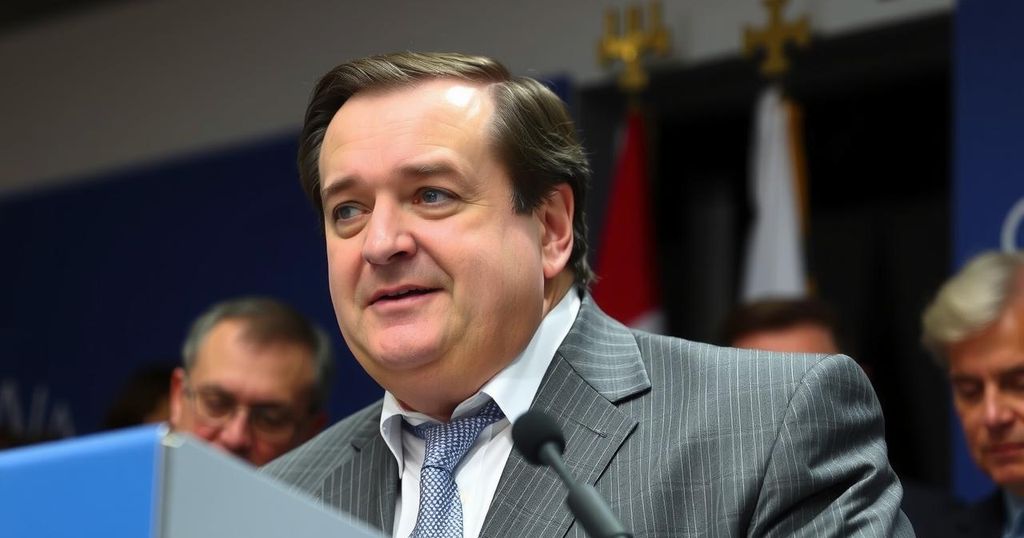Zoran Milanovic, from the opposition Social Democratic Party, is likely to win a second term in Croatia’s presidential election with early results showing him at 50.1% against Dragan Primorac’s 22.3%. If no candidate achieves a majority, a second round will be held on January 12. Milanovic has faced off against Prime Minister Andrej Plenkovic and has been critical of foreign military support related to Ukraine, positioning himself as a counterbalance to the ruling government.
Zoran Milanovic, the candidate from the opposition Social Democratic Party, is poised to secure a second presidential term in Croatia, according to preliminary results released by the State Electoral Commission. With early voting data indicating that Milanovic has captured 50.1% of the votes from nearly 52% of polling stations, he significantly leads his nearest rival, Dragan Primorac from the ruling Croatian Democratic Union (HDZ), who stands at 22.3%. Ipsos exit polls corroborate this trend, further suggesting that Milanovic, aged 58, is likely to emerge victorious in this round of elections.
Approximately 3.8 million eligible voters were presented with eight candidates. Under Croatia’s electoral regulations, candidates are required to secure a majority of over 50% of votes to avoid a run-off election, which would be scheduled for January 12th if no candidate achieves this threshold. Milanovic’s presidency is characterized by ongoing tensions with Prime Minister Andrej Plenkovic, primarily over foreign and domestic policies, including Milanovic’s critique of NATO and EU stances concerning the conflict in Ukraine. Despite the ceremonial nature of the presidency, the role involves significant influence over foreign affairs, defence, and security policies.
During his tenure, which concludes on February 18, Milanovic has often positioned himself as a balance against the predominant HDZ government, which has faced serious scrutiny over corruption allegations that have led to the dismissal of 30 ministers in recent years. This election occurs amidst challenges faced by Croatia, including rising inflation and persistent labor shortages. Milanovic’s initial election in 2020 was marked by a focus on promoting tolerance and liberal principles, yet he now finds himself navigating the complexities of international conflicts. Furthermore, he has expressed concerns regarding Croatia’s involvement in foreign wars, asserting, “As long as I am president, no Croatian soldier will fight in somebody else’s wars.”
In summary, as preliminary results indicate Milanovic’s likely victory in the Croatian presidential election, the landscape reveals significant political tensions, economic pressures, and public sentiment regarding foreign policy. The upcoming second round, if necessary, will further decide the direction of Croatia as it confronts both internal and external challenges.
Croatia’s presidential election serves as a critical juncture in its political landscape, particularly for Zoran Milanovic, who has been at the forefront of political contention. The presidency, although largely ceremonial, holds sway in matters of foreign policy, defense, and national security. Milanovic’s leadership style has drawn mixed reactions, especially concerning his position on the Ukraine conflict and engagement with Western allies. Public perception of governance, influenced by prior corruption scandals in the ruling party, shapes the electorate’s choices as they approach the polls amid economic uncertainties.
Zoran Milanovic is leading the preliminary results in the Croatian presidential election, demonstrating strong voter support amidst a backdrop of political unrest and economic challenges. His position has been marked by conflict with the current government and a critical stance on international military involvement. Should he secure a decisive victory in this election, his presidency may continue to influence Croatia’s political direction and foreign relationships significantly.
Original Source: www.aljazeera.com






